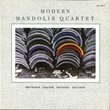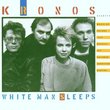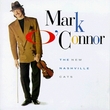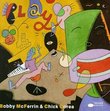| All Artists: Traditional, Dmitri Yanov-Yanovsky, Franguiz Ali-Zadeh, Sofia Gubaidulina, Tigran Tahmizyan, Osvaldo Golijov, Giya Kancheli, Kronos Quartet, Dawn Upshaw Title: Night Prayers Members Wishing: 0 Total Copies: 0 Label: Nonesuch Release Date: 9/6/1994 Genres: Special Interest, Classical Styles: Opera & Classical Vocal, Chamber Music, Forms & Genres, Concertos, Historical Periods, Early Music Number of Discs: 1 SwapaCD Credits: 1 UPC: 075597934625 |
Search - Traditional, Dmitri Yanov-Yanovsky, Franguiz Ali-Zadeh :: Night Prayers
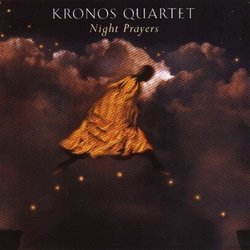 | Traditional, Dmitri Yanov-Yanovsky, Franguiz Ali-Zadeh Night Prayers Genres: Special Interest, Classical
Collaborating with the Tuvan singers, a Latvian cantor and soprano Dawn Upshaw, the internationally-renowned Kronos Quartet performs music from the former Soviet state, a haunting collection of songs and laments joining tr... more » |
Larger Image |
CD DetailsSynopsis
Product Description Collaborating with the Tuvan singers, a Latvian cantor and soprano Dawn Upshaw, the internationally-renowned Kronos Quartet performs music from the former Soviet state, a haunting collection of songs and laments joining traditional music with classical composition. Genre: Classical Music Media Format: Compact Disk Rating: Release Date: 6-SEP-1994 Similarly Requested CDs
|
CD ReviewsA deep, reverent journey through central asia R. Hutchinson | a world ruled by fossil fuels and fossil minds | 04/10/2001 (5 out of 5 stars) "This collection from the Kronos Quartet presents works from Tuva in Western Siberia, Uzbekistan, Azerbaijan, Armenia, Georgia, and Russia, and includes Jewish, Islamic and both Catholic and Orthodox Christian themes. The Throat Singers of Tuva create a ritual opening to the sacred with their opening "Kongerei." You'll have to turn up the volume to hear the lovely but faint soprano voice of Dawn Upshaw singing "Lacrymosa," from the Catholic mass. "Mugum Sayagi," by Franghiz Ali-Zadeh, an Azeri woman composer, begins softly, and then breaks out in virtuosic cadenzas, expressing "the ecstatic longing of a man for a woman expressed as the love of God," an example of the secret Azeri musical tradition of the 16th century used to evade Islamic strictures. Sofia Gubaidulina, the Russian/Tartar woman composer, contributes her masterful "Quartet No. 4" to the album, the most complex, modern piece here, and absolutely wonderful, though a little out of place with the other more folk-influenced works. "A Cool Wind Is Blowing," by the Armenian composer Tigran Tahmizyan, is my personal favorite -- only 4 minutes long, based on an ancient folk tune, it is haunting and memorable. "K'VARAKAT" features the lovely vocals of a Jewish cantor, and was commissioned for the dedication of the U.S. Holocaust Memorial Museum in Washington DC. Finally, the title piece, Kancheli's "Night Prayers," is a mournful and beautiful work that evokes "sadness, compassion and hope" in the words of the Georgian composer. There is much silence and space here, evoking the desert, the mountains, and the steppe. The album is powerfully effective if you surrender to its dark, somber mood. NIGHT PRAYERS is tremendously relevant nowadays, addressing the common human condition across cultures and faiths. It could not be more ideal to accompany reflection and meditation on compassion, tolerance, and PEACE." An uneven but intriguing collection with Gubaidulina's 4th Christopher Culver | 06/06/2005 (4 out of 5 stars) "NIGHT PRAYERS is a collection of pieces performed by Kronos Quartet whose binding theme is Central Asia. With the exception of Osvaldo Golijov, hailing from Argentina but of Russian-Jewish heritage, all the composers represented here were born in the former Soviet republics east of the Black Sea. The disc opens with "Kongerei", a traditional song from Tuva sung by the Throat Singers of Tuva with the simplest of accompaniment by Kronos. The song is a lament for the Tuvans who, because of the arbitrary nature of international borders, are stuck in China unable to see the whole breadth of their ancestral homeland. While it is entertaining, the inclusion of this song smacks of world-music crossover gimmickry. "Lacrymosa" by Uzbekistani composer Dmitri Yanov-Yanovsky is a frenetic piece for string quartet and soprano, based on a portion of the "Dies Irae" sequence of the Requiem Mass. Dawn Upshaw performs the vocal part. The texture of the work is reminiscent of the oeuvre of Arvo Part, but more astringent. I was quite impressed by the piece and look forward to hearing more of the work of Yanov-Yanovsky. The Azerbaijani composer Franghiz Ali-Zadeh contributes "Mugam Sayagi", inspired by the Azerbaijani tradition of disguising songs of love from a man to a woman as a hymn to their god. The work is elegantly structured, a long drone from the cello representing a morning call to prayer before the rest of the quartet responds in passionate dance-like music and cadenzas, and finally a return to solo cello as an evocation of the evening call to prayer. This is a compelling work, probably the most pleasant surprise on the disc, though a bit overlong. Sofia Gubaidulina's "String Quartet No. 4" is, I believe, the most important of the pieces here. This Russian-Tartar composer is one of the greatest artists (and saints) of our time, and her music is Christian with a sincerity and orthodoxy unmatched in contemporary repetoire by anyone but Messiaen. While much of Gubaidulina's work is immediately rewarding, such as her masterpiece JOHANNES-PASSION or her sympony "Stimmen Verstummen", her string quartets are difficult. This quartet, written in 1993, begins with a recording played of rubber balls bouncing on strings, then the use of lights of various colours (which listeners of this CD miss out on), and then finally the string quartet begins to play. The use of a recording which the performers have to answer may have been inspired by Nono's piece "La lontananza...", which Gubaidulina helped realise three years before. However, Nono's work is a dispassionate exploration of various timbres, while Gubaidulina's is rapture and ecstasy. The Armenian musical tradition is represented here by Tigran Tahmizyan's piece "A Cool Wind is Blowing" for string quartet and duduk, a type of flute, here performed by Djivan Gasparian. The song is based on a folk song, a remnant of the Armenian culture that flourished before Muslim and Soviet domination, but the string quartet plays--almost at right angles to the flute part--a series of throughly modern sounds. It is quite short, under four minutes, and there is not much to say about it. Osvaldo Golijov's "K'vakarat" was commissioned for the dedication of the U.S. Holocaust Museum in Washington D.C. It is centred around a Hebrew prayer sung during the High Holidays, and movingly sung here by the cantor Mikhail Alexandrovich. The cantor stands in worship of God, but the string quartet's role is meant to provide resistance. "Starting with Jakov who fought with God's angel," writes Golijov, "I have always admired the rebels." The piece stands in strong contrast with Gubaidulina's, for hers is a work of praise while Golijov's is a piece of doubt. The disc closes with Giya Kancheli's "Night Prayers", at 23 minutes the longest piece here. For most of its length it is for unaccompanied string quartet, but in the last couple of minutes a recording is use of a male choir and boy soprano singing "Domine, exaudi vocem meam, Domine." The only other work I have heard by this Georgia composer is "Styx", which I find quite pleasant, but this piece neither touches the heart nor dazzles with technical innovation, and represents the worst parts of the "holy minimalism" genre. I am a passionate admirer of the music of Sofia Gubaidulina, and think that this disc is worth buying just to obtain a recording of her fourth string quartet. Beyond that, however, this is a fine opportunity to learn about Central Asian composers who have embraced Western music but have brought along something unique from their own national traditions." Mysticism, Hauntingly and Atmospherically Intoned by Kronos Grady Harp | Los Angeles, CA United States | 09/16/2005 (5 out of 5 stars) "The Kronos Quartet will doubtlessly maintain a unique place in music history as the most innovative, risk-taking, humanistic fine group of musicians ever known. Not only is their ability to perform standard works excellent, but they have always stretched that virtuosity to explore rarely heard and even commissioned works by composers including some not known to the Western world at least.
NIGHT PRAYERS is as fine an example of their artistic strategy as any of the many recordings they have made. Though the works on this recording are truly meant to be performance art (the lighting and placement of the quartet and soloists on stage is a prime importance), this brilliant CD at least captures for posterity the beauty of the works they have performed. The driving force of these varied works is to present music that is spiritual in a way many of us have never experienced. The works are primarily from the depths of Russia and Siberia and Eastern European countries influenced by the nomadic oriental sounds of a world practically unknown to us. Opening the recital is 'Kongerei', a traditional work from Tuva in Mongolia and is fascinatingly intoned by throat singers capable of producing multiple pitches (allowing themselves to harmonize with themselves!) simultaneously with the cello providing the ground bass. This strangely haunting work is followed by Uzbekistani Dmitri Yanov-Yanovsky's setting of the 'Lacyrmosa'. The soloist, aptly, is Dawn Upshaw whose quiet clearly focused voice is surrounded in beauty by the minimalist quartet writing. 'Mugam Sayagi' by Azerbaijani Franghiz Ali-Zadeh is based on 16th century secret language of Islam and is primarily a solo cello work with minor filigree work from the violin. The stunning Quartet No. 4 by the brilliant Russian composer Sofia Gubaidulina and combines pre-recorded music (bouncing rubber balls) and live music it a manner that never approaches parody. It is simply stunning writing. 'A Cool Wind Is Blowing' by Tigran Tahmizyan is Armenian in style and in derivation and utilizes the Armenian wooden oboe (duduk) as played by Djivan Gasparian to reveal the poetry. The 'K'vakarat' by Osvaldo Golijov who, though born in Argentina, is from Russian Jewish parents and thus his composition for Cantor (Mikail Alexandrovich) and quartet fits well into this collection of music form the Steppes. The final work is the most mystical and beautiful for this listener. 'Night Prayer' by Georgian Giya Kancheli is not only a wondrous work for string quartet, it also adds voices at the end, voices of children singing 'Lord, hear my voice, Lord'. The use of silences is breathtaking. This is simply one of those unusual recordings that deserves a wide audience. It is food for the mind, the soul, and the spirit. Highly Recommended. Grady Harp, September 05" |

 Track Listings (7) - Disc #1
Track Listings (7) - Disc #1